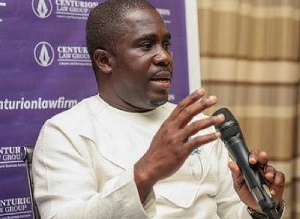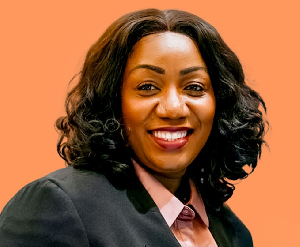Dear readers,
The narration of my journey across West Africa continues.
Journal entry – start
Date: 28/11/11
Time: 12:34PM
Location: Unknown, Niger
Why do people use religion as an excuse to abuse others?
Journal entry – end
Commentary
It's acceptable for people to hide behind religion to abuse children in this part of West Africa. I’m speaking about the talibe child beggars in Mali, Niger, some parts of Senegal and Northern Nigeria. Teachers send out children to beg for them, and penalized when they fail to bring home bowls full of coins and paper money.
The sight of the two talibes in the attached photo is heartbreaking.
We have permitted similar phenomenon to take hold in the center of Accra. Migrants of North African descent have set up begging enterprises all around the capital, where they force their children to harass pedestrians and drivers for money. They sometimes abuse the children openly if they fail in the harassment attempt. This is different form of the talibe practice. I visited the Tetteh Quarghie interchange area to take photos of some the children purposely for this episode.
We left Ouagadougou early in the morning and came through Koupela, Fada-Ngourma, Kantchari and to the border around noon. The Burkinabe exit border with Niger is the only border that did not extort money from me for the first time.
Walking to the bus after crossing the border, two talibes came over to me, shoving their begging bowl in my face. The sight of them was heartbreaking. It was the first time I came face to face with talibes. A Nigerien translated the plight of the children to me. The children revealed that if they do not bring more coins and paper money home, their teacher, known as mallam, would normally punish them. Upon this confession, I gave each one of them 1000 CFA franc with the rest of the coins on me. Wondering where I'm from, a gentleman approached and inquired. "Where are you from?"
“A Ghanaian, “ he reacted to my response, “no wonder you are playing with the children.”
“Why do you say that?” I inquired
“You don’t usually see people playing with them as you are doing,” he responded.
“If I may ask,” I started interacting with him, “are you Nigerien?”
“Yes I’m,” he responded.
“Is there an outrage in Niger regarding the abuse meted out at talibes by their teachers?” I inquired
“Their parents sent them to the teacher to learn the Quran,” he responded, “The teacher in turn also sends them out to beg for him. The government has done its part by providing free healthcare for pregnant women, and that is what…” he responded.
“Free healthcare for pregnant women?” I quickly interrupted
“Yes,” he responded pulling out his business card at the same time, “we do that. I’m one of the sub directors of the program.”
“Do you think it makes sense that pregnant women are provided with free healthcare?” I inquired with a grim look on my face.
“Yes,” he responded, “it is okay. The government takes care of every pregnant woman throughout. We are proud of this. Do you have a similar policy in Ghana?”
“Yes,” I responded, “we have similar policy in Ghana, but I don’t commend it. Do you realize your country is one of the poorest countries in the world?”
“Uhmm yes,” he responded with an uncomfortable look
“Where does your government gets the fund to provide free healthcare for pregnant women?” I further questioned, ignoring the look he gave me.
“Uhmm foreign aid,” he responded, “the taxes we pay, and…”
“Great answer,” I responded, “exactly what I wanted you to say. Do you think your country being one of the poorest in the world should spend the foreign aid you receive and the revenues you generate to provide free healthcare for pregnant women? Shouldn’t you use the funds to improve your infrastructure?”
He got stuck for a moment, thinking, of course.
“But you said Ghana does the same thing,” he continued the interaction, “So I can ask you the same question.”
“That is true,” I responded, “I do not commend it. It’s not the responsibility of the taxpayer to pay for another person's healthcare. Why should I bear the responsibility for your decision to procreate? No one is responsible for your poor impulse control.”
If you happened to agree with Mr. Mou, let me ask you this: Why should another person work to provide free healthcare for you, your pregnant wife, sister or mother? What makes you think you are entitled to something you did not work for?
In other words, we are directly encouraging overpopulation. We tell every woman: get pregnant, the government will provide you with free healthcare. Seriously?
In an attempt to sympathize with the common person, they've created more problems.
We can almost relate every problem we face with overpopulation. Whoever sat down to come up with this idea is an irresponsible person. As a taxpayer, I have the right to object to how my tax contribution is dispensed. I’m honestly opposed to using my tax contribution to provide free healthcare for pregnant women. I cannot be forced to bear the responsibility for someone else’s personal decision to procreate. It’s wrong.
This stirs up a sense of entitlement in people. You are not entitled to something another person could provide for you without your effort. If you support providing free healthcare for pregnant women, in other words, you support a system that removes incentives to hard work and rewards people who work with no effort at all. This behavior negates hard work.
It’s fascinating how we thrive to create welfare system when we lack the means to sustain it. We procreate at a rate we cannot afford, and take pride in offloading the burden on the rest of the world. What does this say about us?
Mr. Mou was willing to listen to an opposing idea. This is a sign of intelligence. I told him about our school-feeding program.
“Mr Mou,” I started the interaction, “let me tell you about something else we do in Ghana. We provide free meal for schoolchildren, but another country foots the bill for this one. I’m not sure if this has changed. We beg for aid, and when we are granted, we use it to provide free meal for children. It's a shame, isn't it? Would you permit your tax contribution to be used in such manner?”
“I don’t know,” he responded with a smirk, “I’m going to have to think about that.”
“Sure,” I responded, “we are on the receiving end, so we don’t understand how it feels. Takers hardly think. I surely would object to it if I were the giver. Do you train children to be responsible by teaching them to accept free meal on a daily basis?
Mr. Mou was still quite.
“Are you a socialist?” I further inquired.
“Yes,” he responded, “why do you ask?”
“Nothing,” I responded, “just for clarification.”
Mr. Mou is an educated person, and I’m sure he gave me an honest answer.
With this, we entered the bus and continued to Niamey, the Nigerien capital.
Motorcyclists wear helmet in Niamey, unlike in Northern Ghana and other parts of West Africa.
There’s a lot I would love to share about the experience in Niger, but I hate to take up a lot of space, so I will end here and continue next week.
Next Episode
This features the experience from Maradi through Katsina to Kano.
Do you object to the North Africans' begging enterprises? If you do, register your displeasure with AMA or any other body that is in charge of putting a stop to it. I have already written my letter and would get it in the mail to AMA on Monday. This would only take a moment of your time, but would make a difference.
AMA’s mailing address:
Accra Metropolitan Assembly
P.O. Box 385
Accra
Ghana
Whilst at it, compose another letter to the NHIA to register your opposition to the free maternal care policy.
NHIA
PMB Ministries, Accra
Ghana
For the photos, go to:
http://www.modernghana.com/news/426441/1/my-journey-across-west-africa-pt-9-the.html
Opinions of Sunday, 28 October 2012
Columnist: Chasant, Muntaka
My Journey Across West Africa Pt. 9: The Abuse of Children
Entertainment

















